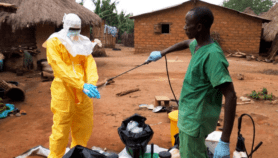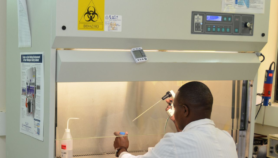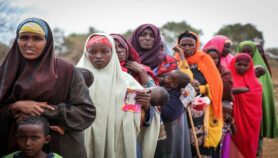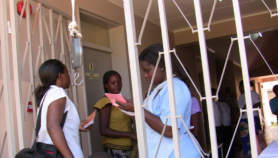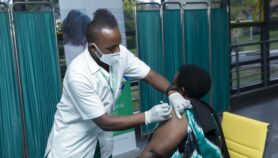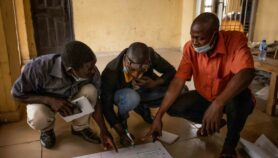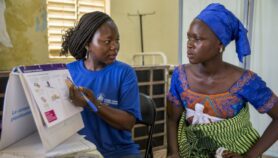27/05/21
Ebola lessons ‘helping West Africa control COVID-19’
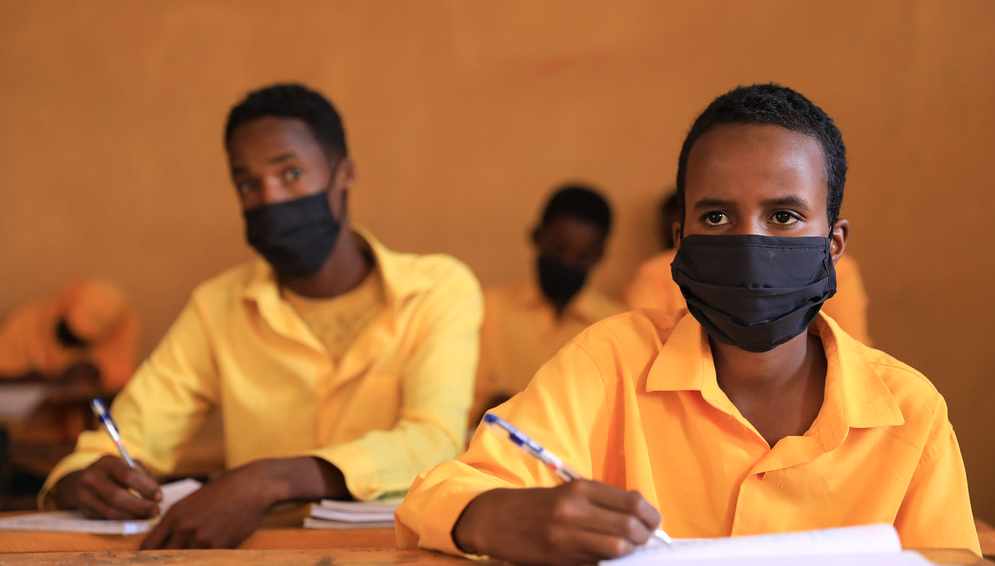
By: Francis Kokutse
Send to a friend
The details you provide on this page will not be used to send unsolicited email, and will not be sold to a 3rd party. See privacy policy.
[ACCRA] Strengthening disease and epidemics surveillance systems could be key in eliminating COVID-19 in West African countries, especially as it was effective during the 2014-16 Ebola outbreak, a study says.
According to the study, the Ebola disease outbreak in West Africa led to 11,325 deaths out of 28,625 people infected but also led to the Economic Community of West African States (ECOWAS) establishing the Regional Centre for Surveillance and Disease Control to prepare for and respond to future epidemics.
“About 42 per cent of funds were allocated to public health activities and strategies (communication, prevention, detection, direct response, equipment; research, and health systems).”
Césaire Ahanhanzo, West African Health Organisation
Césaire Ahanhanzo, the study’s lead author and coordinator of World Bank projects at the West African Health Organization (WAHO) in Burkina Faso, tells SciDev.Net that COVID-19 has been better handled in the region than the Ebola virus outbreak because countries appeared better prepared, with a more robust response coordination at both regional and country levels.
He cites the WHO-sponsored Regional Disease Surveillance System Enhancement, which was started in 2016 in ten out of the 15 ECOWAS countries including Guinea and Sierra Leone, as key.

He explains that the platform set up by ECOWAS and WAHO for sharing information and experiences, along with early initiatives for training and capacity building of the workforce to detect and manage cases, were instrumental in curtailing the disease and avoiding its quick spread across the region.
Resources were also well managed, says Ahanhanzo, with around half the available funding (50.7 per cent) used to help finance economic measures such as the provision of social safety nets for vulnerable populations, grants and loans to support businesses.



“About 42 per cent of funds were allocated to public health activities and strategies (communication, prevention, detection, direct response, equipment; research, and health systems), of which about 23 per cent was used to fund direct epidemic response strategies in the region in the early stages, while more recently vaccines or treatment account for an additional 7.8 per cent,” he adds.
The study, published in the BMJ Global Health this month (4 May), looked at how West Africa mobilised resources to control COVID-19 within the first year of Nigeria recording the region’s first case on 27 February 2020.



“As of 28 February 2021, about US$158 billion had been mobilised by ECOWAS countries, out of which 87.8 per cent through country-specific initiatives and 12.2 per cent through multicountry initiatives,” says the study.
It added that ECOWAS and WAHO mobilised about US$45.5 million from partners and free will donations from staff amounting to about US$400,000.
But Tuyi Mebawondu-Olowu, a physician and chief executive officer of Medway Health Limited in Nigeria, tells SciDev.Net that if West African countries had ramped up tests, the number of positive COVID-19 cases and deaths may have been different.



Mebawondu-Olowu says that although the study describes responses to Ebola and other diseases such as Lassa fever as examples of past experiences, it should have looked at the use of emergency operation centres in previous outbreaks and how they could be adapted for COVID-19.
“Let us not forget that both Ebola and Lassa [fever] have been with us for more than five decades,” explains Mebawondu-Olowu. “We must have garnered experience in managing them over time. It may not be scientifically apt to compare management strategies of a novel virus with epidemics of decades.”
This piece was produced by SciDev.Net’s Sub-Saharan Africa English desk.
References
Césaire Ahanhanzo and others COVID-19 in West Africa: regional resource mobilisation and allocation in the first year of the pandemic (BMJ Global Health, 4 May 2021)


